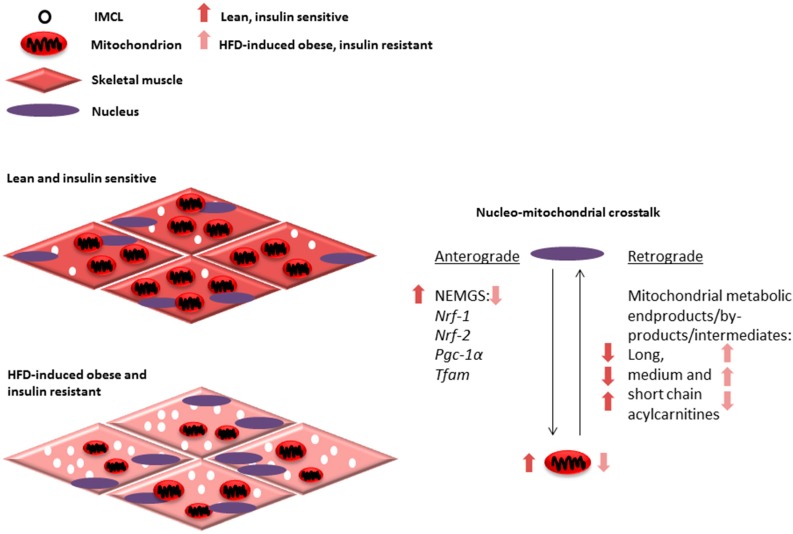Figure 1.
Mitochondrial adaptations, such as alterations in number and function, are determined through coordinated communication that occurs between the nucleus and mitochondria. This communication or nucleo-mitochondrial crosstalk is a two-way process involving anterograde communication from the nucleus to the mitochondria and retrograde communication from the mitochondria to the nucleus (right). The expression of several nuclear-encoded mitochondrial genes (NEMGs) are known to regulate skeletal muscle mitochondrial number and function, including Nrf-1, Nrf-2, Pgc-1α and Tfam and contribute to anterograde communication. Alternatively, mitochondrial protein or metabolic products are known to play a role in retrograde communication to determine NEMG expression. We propose that mitochondrial beta oxidation intermediates, by-products and products, such as long, medium and short acylcarnitines, may act as part of this retrograde communication. Interestingly, in response to high fat diet (HFD) feeding and during obesity and insulin resistance, a downregulation in NEMG expression is seen. Alterations in acylcarnitine profiles suggesting incomplete beta oxidation with accumulation of long and medium chain acylcarnitines with respect to short chain acylcarnitines (arrows represent ratios of skeletal muscle acylcarnitines in comparison between lean, insulin sensitive, and obese, insulin resistant states) and decreased mitochondrial number and function. These alterations may contribute to increased intramyocellular lipid (IMCL) accumulation and insulin resistance during HFD-induced obesity (left).

